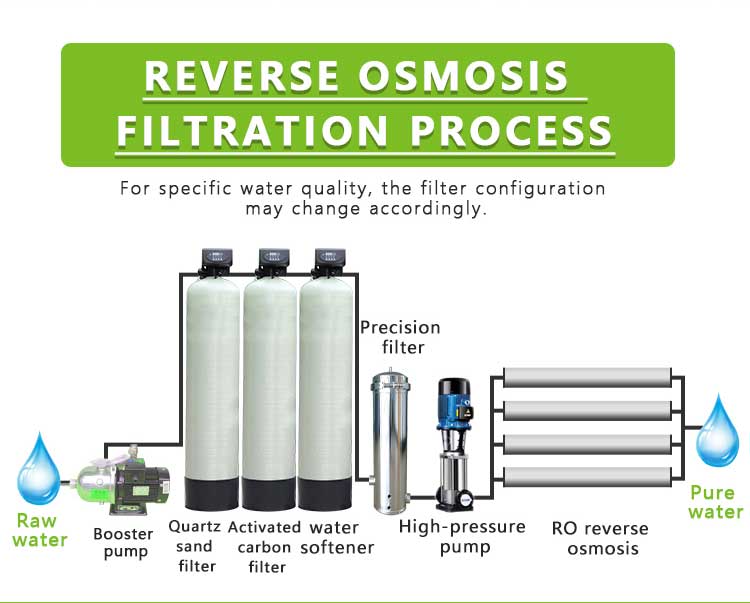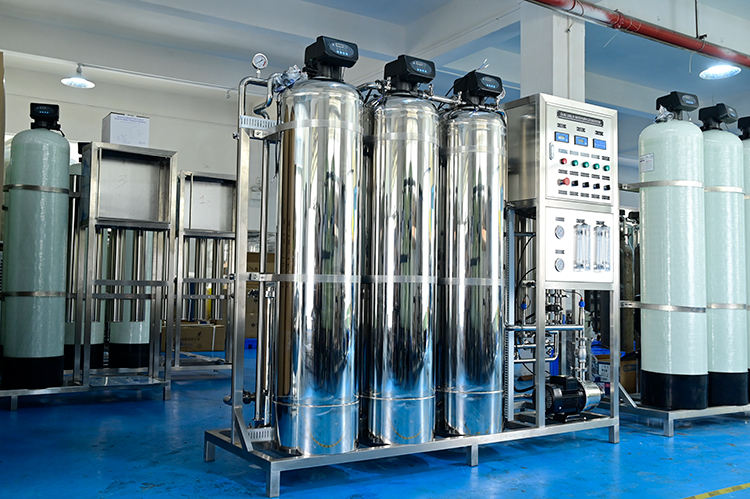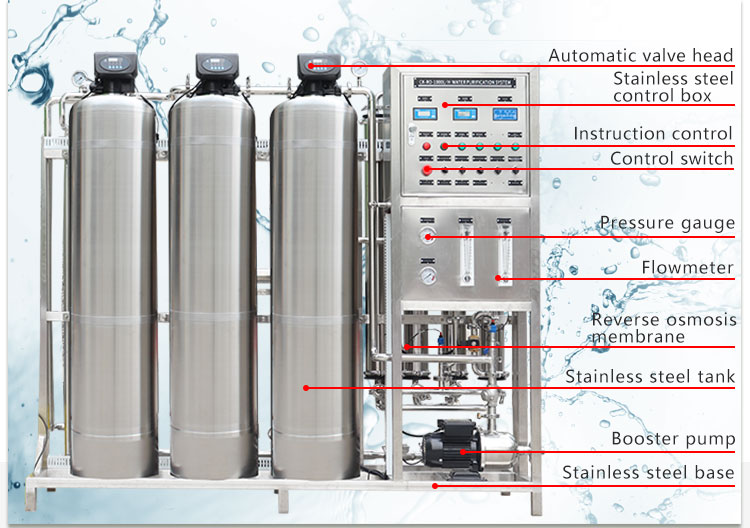Should I install a commercial water filtration system?
In today's world, water safety is a topic of great concern. With the increase of industrialization and urbanization, water sources have become increasingly polluted and affected. Therefore, installing a commercial water filtration system has become an important choice for individuals and businesses. This news will explore this topic and provide relevant advice and information.

What does a commercial water filtration system do?
Commercial water filtration systems can effectively remove impurities and contaminants from water. Through a variety of methods such as physical filtration, chemical adsorption and biological treatment, water filtration systems can remove foreign matter and harmful substances from water to provide clean and safe drinking water.
Should I install a commercial water filtration system?
For many families, especially those who rely on tap water supply, installing a commercial water filtration system is crucial. If your home does not yet have a water filtration system, it means that your water is more likely to be contaminated by chemicals, pesticides, organic matter and other man-made and natural contaminants that may endanger water safety. In this case, we strongly recommend that you install a water filtration system to ensure that your water supply is safe and clean.

What is the impact of commercial water filtration systems on family life?
The installation of a commercial water filtration system has a positive impact on family life, mainly in the following aspects:
1. Improve the drinking water experience of family members: Commercial water filtration systems can remove odors and pollutants in water, provide clean and sweet drinking water, improve the drinking water experience of family members, and promote the formation of a healthy lifestyle.
2. Protect the health of family members: Installing a commercial water filtration system can effectively remove harmful substances in water, reduce the risk of family members drinking contaminated water, prevent the occurrence of waterborne diseases, and protect the health of family members.
3. Reduce the family's economic expenses: Long-term purchase of barreled or bottled water will increase the family's economic burden, while installing a commercial water filtration system can directly use tap water, reduce the cost of purchasing water, and save family expenses.
4. Reduce environmental pollution: The installation of a commercial water filtration system can reduce the use of plastic bottles and plastic barrels in the family, reduce the generation of plastic waste, and is conducive to protecting the environment and reducing resource waste.
What types of commercial water filtration systems are there?
There are many types of commercial water filtration systems, each with its own unique functions and advantages.
1. Reverse Osmosis System: Reverse osmosis system filters tiny particles and dissolved substances in water through a semi-permeable membrane to provide high-purity drinking water. This system can effectively remove most contaminants, including heavy metals, bacteria and viruses.
2. Activated Carbon Filter: Activated carbon filter uses adsorption to remove organic matter, chlorine and odor from water, improving the taste and quality of water. This filter is often used to improve taste and purify water quality.
3. UV Disinfection System: UV disinfection system uses ultraviolet radiation to kill bacteria, viruses and other microorganisms in water, providing safe and reliable drinking water.
4. Ceramic Filter: Ceramic filter uses microporous structure to filter particles and microorganisms in water, which is an affordable and reliable filtration method.

Choose the right commercial water filtration system for you
Choosing the right commercial water filtration system for you requires considering multiple factors, including water quality, water volume, budget and usage scenarios.
1. Water quality analysis: First of all, it is very important to conduct a water quality analysis to understand the type and concentration of contaminants in the water so as to choose the right filtration system.
2. System performance: Consider the system's performance indicators, such as filtration efficiency, water output, maintenance cost, etc., and choose a system that suits your needs.
3. Brand reputation: Choose a well-known brand and a commercial water filtration system with a good reputation to ensure product quality and after-sales service.
4. Cost-effectiveness: Consider the equipment price, operating cost and maintenance cost, and choose the most cost-effective commercial water filtration system.
Summary
In the current increasingly severe water quality problems, installing a commercial water filtration system has become an important measure to ensure the safety of water for individuals and enterprises. By choosing a filtration system that suits your needs and fully understanding the types and functions of the system, you can effectively improve water quality, ensure health, and contribute to sustainable development.




